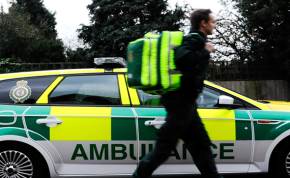The end of shift trial previously announced on Need to Know started on 3 August and has now been running for almost three weeks.
Initial analysis suggests some positive results:
- Late finishes. During the trial so far, we have seen late finishes as a percentage fall below the trust average on almost every day. The average time per shift that each resource is late off is also below pre-trial data, as well as being below the rest of the trust. This is really encouraging, even with the recent hospital pressures that West Norfolk and West Hertfordshire staff will have experienced
- Late starts. Although we did not expect to see it this early, there has been a reduction in late starts (i.e. starts over 5 minutes after planned shift start time) both in number and in total hours. This was one of the potential beneficial consequences of reduced late finishes and means that resources are more available to be dispatched instead of crew that is in their last 30 minutes or to back up a solo responder waiting for a HOT2, preventing a late finish.
- C1 dispatch. As of 23 August there have been 13 occasions out of total of 1521 shifts across West Norfolk and West Hertfordshire where a trial resource has not been sent on a C1 call to which they would have been assigned if not in the trial. This is an encouraging indication of the protection provided, but also that the risk of being assigned a C1 in the last half hour of a shift is actually very low.
- Clinical override. There has been only two occurrences known to the trial team where a trial resource has been dispatched to a C1 in their last 30 minutes. In one case it was an exception override by a clinical coordinator which has been analysed for lessons learned and any amendments needed to the trial process.
- Patient safety. Both the EOS Trial team and the Clinical Directorate have undertaken daily conference calls to discuss any calls affected by the trial. As writing there has been either no or negligible harm caused as a result of not attending these calls sooner.
Following a review by the Patient Safety team, Clinical Directorate and Operations, the second week of the trial saw the introduction of a small number of additional codes to which trial resources could be sent to in their last 30 minutes. These were for the calls which are truly time critical – the types of call where an immediate intervention could save a patient’s life.
What next? The trial team are reviewing the data and the lessons learned so far and have started to consider implications and options for any potential ‘roll-out’ as well as what the next iterations of the trial might be.
The trial team can be contacted via a dedicated email address: eostrial@eastamb.nhs.uk. Feedback, comments, suggestions etc. are welcome.
Published 25th August 2021
